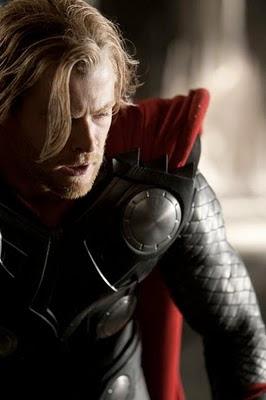China Miéville clearly quite likes Neil Gaiman's
Neverwhere, or perhaps he thinks it's deeply flawed. Either way,
Kraken marks the second time, after the excellent
Un Lun Dun, that he's tried to write his own version of Gaiman's story, but this attempt is rather less successful than the first.

The characters are the weakest I've yet seen from Miéville. His protagonist goes from undefined nobody to undefined hero, his "sidekick" remains fuzzy and indistinct throughout, and there's an attempt to introduce a secondary protagonist who more or less does nothing except wander around the edges of the story failing to get involved until she's kidnapped near the end. Oh, SPOILER, sorry. We get characters who turn out to be quite important to the plot but who we don't really get to know in any meaningful way, so their contributions seem hollow. Likewise we get characters (the same one, sort of, but to say more would be a spoiler) who are important up to a certain point, but then just sort of fade away into the background for no apparent reason. The most memorable character is a police-officer-cum-witch who is notable for her inventive swearing and little else. It's a bit of a vague mess, and the cast could have done with a bit of trimming, to allow more room to develop the rest.
I could also do without Miéville's strange and recurring tendency towards baiting his audience; this time he has a go at fans,
Star Trek in particular, but the intent is clear, and he also throws in a couple of jabs at those who may have thought that a novel about cultists of a squid god might, just might, have some connection to HP Lovecraft's
Cthulhu. In interviews, Miéville says that these swipes are affectionate, but they do seem rather bitter and unnecessary in the text. Then again, I get the feeling that a lot of his fanbase probably don't think of themselves as readers of fantasy, so these little nods probably empower their distended snootiness glands.
Miéville's biggest flaw remains that he is better at creating worlds than he is telling stories. His Bas-Lag series (there are three books so far, but it's not a trilogy) offers a look into a fascinating fantasy world, quite different from your bog-standard post-Tolkien elves-and-dwarves faff, but while
The Scar presented a rollicking pulp pastiche and is easily his best book yet,
Iron Council was a bunch of ideas looking for a plot, and
Perdido Street Station was somewhere in between.
Kraken is set in modern-day London rather than Bas-Lag, but the same problems remain, and it hovers somewhere in the middle of that scale.
I'm going to lose some of you here, but
Kraken rather feels like Miéville's campaign setting for his personal modern magic role-playing game, just as his Bas-Lag books often seemed like primers for a
Dungeons & Dragons campaign setting. There is a plot here, and it's quite clever in places, but it seems like it is really only there to link together the writer's ideas, which in fairness are also very clever. It still makes for an enjoyable read, but not entirely a satisfying one, unless you're looking for ideas to pinch for your
Unknown Armies game.
(I'm done with the excessive geekery now; normal people can resume reading at this point.)
Kraken is not a bad book, and it's miles better than
Iron Council, but it's not great either.
Un Lun Dun may have been for kids, but it was a much more enjoyable read than this occult thriller which forgets to thrill.



